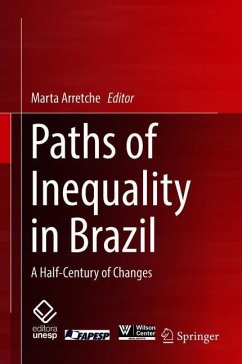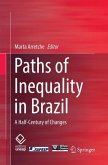This book presents multidisciplinary analyses of the historical trajectories of social and economic inequalities in Brazil over the last 50 years. As one of the most unequal countries in the world, Brazil has always been an important case study for scholars interested in inequality research, but in the last few decades has brought a new phenomenon to renew researchers' interest in the country. While the majority of democracies in the developed world have witnessed an increase in income inequality from the 1970s on, Brazil has followed the opposite path, registering a significant reduction of income inequality over the last 30 years.
Bringing together studies carried out by experts from different areas, such as economists, sociologists, demographers and political scientists, this volume presents insights based on rigorous analyses of statistical data in an effort to explain the long term changes in social and economic inequalities in Brazil. The book adopts a multidisciplinary approach, analyzing the relations between income inequality and different dimensions of social life, such as education, health, political participation, public policies, demographics and labor market.
All of this makes Paths of Inequality in Brazil - A Half-Century of Change a very valuable resource for social scientists interested in inequality research in general, and especially for sociologists, political scientists and economists interested in the social and economic changes that Brazil went through over the last two decades.
Bringing together studies carried out by experts from different areas, such as economists, sociologists, demographers and political scientists, this volume presents insights based on rigorous analyses of statistical data in an effort to explain the long term changes in social and economic inequalities in Brazil. The book adopts a multidisciplinary approach, analyzing the relations between income inequality and different dimensions of social life, such as education, health, political participation, public policies, demographics and labor market.
All of this makes Paths of Inequality in Brazil - A Half-Century of Change a very valuable resource for social scientists interested in inequality research in general, and especially for sociologists, political scientists and economists interested in the social and economic changes that Brazil went through over the last two decades.








